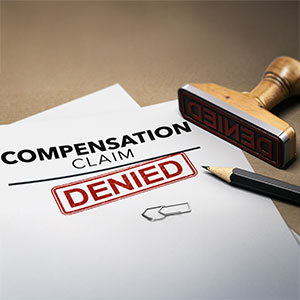Insurance Companies Try To Sue Their Own Attorneys
Personal InjuryIn the case of Arch Insurance Company, v. Kubicki Draper, LLP, Case Number 4D17-2889 (Fla. 4th DCA January 23, 2019), the insurance company sought to hold the law firm it hired to defend its insured responsible for malpractice after the insurance company was “forced” to settle a claim for which they claim there was a valid and winnable defense.
Facts Of The Case
The trial court ruled that the insurance company did not have standing to sue the law firm representing the insured for malpractice because the law firm’s contract legal duty was to the client and not to the insurance company.
The insurance company involved complained that the law firm “delayed” in filing a statute of limitations defense. The insurance company further claimed that a “large settlement” was reached with the plaintiff because of the law firm’s failure to timely file the statute of limitations defense and that the settlement could have been avoided if the law firm had raised the statute of limitations defense sooner.
Reasoning Of The Court
While the opinion does not give us enough information to determine whether the statute of limitations defense would have been successful or not, the Fourth DCA quoted long-held legal precedent that “[t]o bring a legal malpractice action, the plaintiff must either be in privity with the attorney, wherein one party had a direct obligation to another, or, alternatively, the plaintiff must be an intended third-party beneficiary.“
In Florida, a personal injury defense attorney is supposed to be representing the best interests of the person being sued. This may or may not be consistent with the best interests of the insurance company, who has agreed to pay for a defense for the person being sued in exchange for the premium received on the policy.
The opinion also pointed out from the law firm’s motion that “[n]o Florida case law recognizes an attorney-client duty owed by defense counsel to an insurance carrier where the attorney is hired to defend an insured with respect to a liability claim filed under the carrier’s policy.” Further, to engage in a joint representation, the law firm would have been required to make a disclosure of the dual representation and there would have to be a discussion of conflict of interest situations.
Clearly, this type of dual representation is not what people purchase insurance for. Instead, most of us purchase insurance because we are required to do so or because we want the protection in the event that we get sued for doing something wrong. Likewise, even though the insurance company has control of the litigation so long as the damages are contained within policy limits, there is the potential for insurance bad faith in the event that the damages are potentially greater than the policy limits while the insurance company maintains control over the litigation.
The Insurance Company Is Not An Intended Third Party Beneficiary Of An Insurance Policy
Insurance companies like to think that whatever they say goes just because they are the ones paying (but don’t forget that this is what the insurance company agreed to do when they sold the policy in the first place). In this case, the insurance company tried to argue that they were an intended third party beneficiary to the representation between the law firm and the insured because they are paying. The insurance company further tried to argue that there is a moral hazard in allowing the defense of insured without liability to the insurance company.
The Fourth DCA said that “[w]e see nothing in the record to indicate that the insurer was an intended third-party beneficiary of the relationship between the law firm and the insured.”
The Insurance Company Is The Friend Of No One
This case is yet another example of how insurance companies only seek to serve themselves. Insurance is no longer a concept of “pooling risk” to minimize the damage caused by losses. Instead, insurance has become an institution of pure profit and they are now flexing their financial muscles to get their way.
Likewise, defense attorneys who are hired by insurance companies are merely that. Defense law firms are not insurers that things will always go right in litigation. In addition (while it is not apparent whether the statute of limitations defense was readily apparent or not from the opinion itself), the validity of the defense may not have been as strong as claimed and may have put the insured at risk in the event of an adverse court ruling.
However, the Fourth DCA did not allow the insurance company to have a “head’s, they win and tails, you lose” situation. Insurance companies are professionals in the business of litigation. While no one likes to lose, there has to be a winner and a loser in litigation–this is why it is such a hard luck game. The fact that a “large settlement” was reached with the plaintiff suggests that the claim was likely legitimate and, in the interest of shifting losses as insurance is supposed to do, the payment likely was justified considering the loss suffered and “waiting too long” to file a claim may not have been a winning argument.
Reach Our For Help With Your Personal Injury Case
Personal injury cases are often contested on both liability and damages. To have the best chance at success on your Florida personal injury case, you will need the help of a personal injury lawyer. Call us today to schedule your free personal injury consultation.


